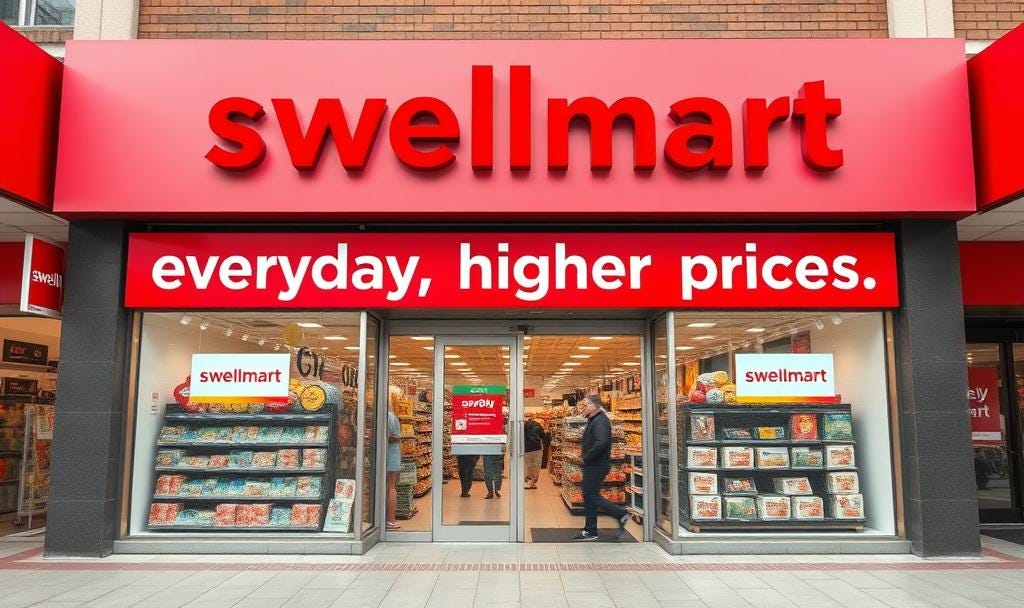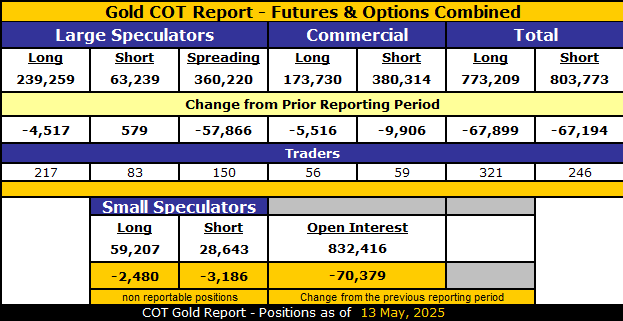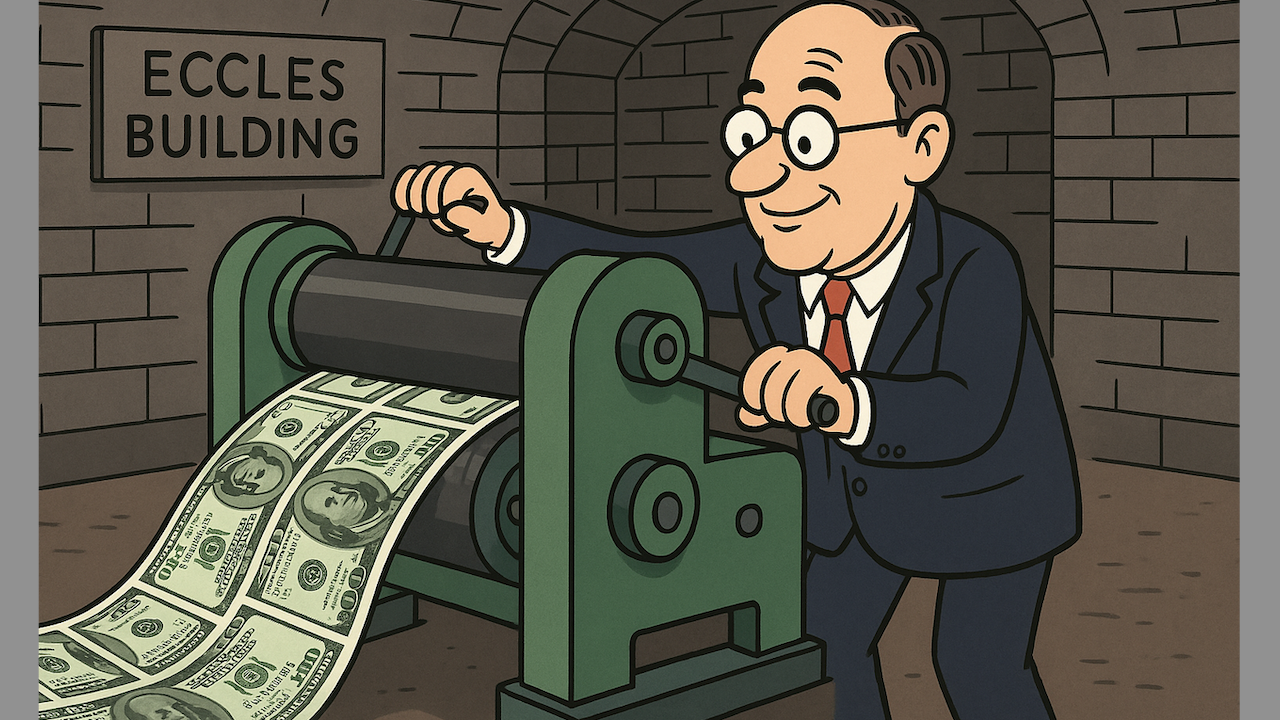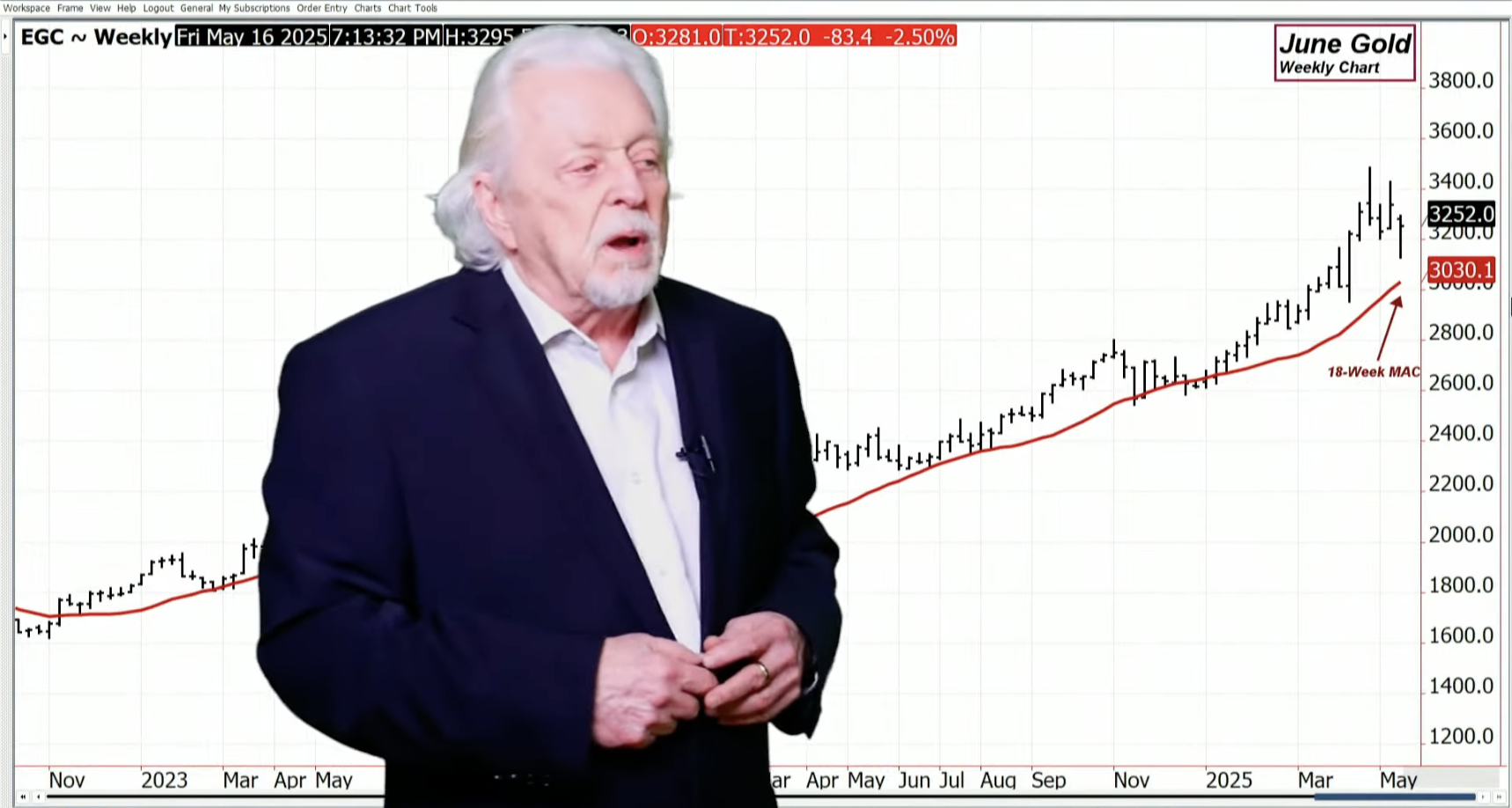I came across a video of some of the top people in the AI world discussing what keeps them up at night and just how close their potential nightmares are. I’m going to save that topic for my weekend Deeper Dive in order to give it careful attention, while for now, we’ll close the week’s regular editorials with some clear warnings of tariff inflation from those who will be overseeing the actual repricing.
Undoubtedly, the two retailers who are best set up to keep inflation from tariffs down as much as possible are the behemoths Walmart and Amazon, which have both built their reputation on helping shoppers secure the lowest prices on the broadest array of goods.
Walmart’s CFO, in conveying the retailer’s Q1 report, made it crystal clear that Walmart, albeit reluctantly, will be raising a lot of prices and will start doing so quickly. To be clear, they emphasized that their overall objective as one of the lowest-cost retailers in the world will be to capitalize on their strength and their breadth of connections to gain market share during the new inflationary environment by keeping prices down as much as they possibly can absorb in order to beat out many companies that are not positioned as well to fight inflation. They will make sure their prices on everything are as low or lower than their lowest competitor, even if that means taking a bite out of their profit margins on some items. Nevertheless, prices, they said, will definitely be rising very soon and, in some cases, by a lot:
Walmart on Thursday fell just short of quarterly sales estimates, as even the world’s largest retailer said it would feel the pinch of higher tariffs.
Wall Street was … underwhelmed by the results Thursday, as shares fell more than 1% in morning trading….
Chief Financial Officer John David Rainey said tariffs are “still too high” – even with the recently announced agreement to lower duties on imports from China to 30% for 90 days.
“We’re wired for everyday low prices, but the magnitude of these increases is more than any retailer can absorb,” he said. “It’s more than any supplier can absorb. And so I’m concerned that consumer is going to start seeing higher prices. You’ll begin to see that, likely towards the tail end of this month, and then certainly much more in June.”
Then Walmart’s CEO laid out which kinds of products will experience the most definite price increases:
CEO Doug McMillon said on the company’s earnings call that tariffs on China, in particular, create the greatest cost pressure. He said imports from the country account for high volume in categories such as toys and electronics.
He said Walmart is focused on keeping food prices low, but said tariffs on countries like Costa Rica, Peru and Colombia have put pressure on the prices of bananas, avocados, coffee and roses. In some cases, he said, it’s keeping prices where they are — even if that means absorbing higher costs — such as keeping the price consistent for flowers at Sam’s Club on Mother’s Day….
Still, [CFO Rainey] said, Walmart plans to “play offense” by keeping its price gaps below competitors. He said the company will absorb some of the higher prices from tariffs and expects suppliers will, too.
He said Walmart has not canceled any orders, but has reduced the size of some purchases. For example, he said, it is buying less of items that it anticipates may sell less because of a higher tariff-related price.
When you consider the advantages of scale and the experience Walmart has in aiming for its “everyday low prices,” you know that, since its CEO and CFO are telling you there will be some price increases coming as early as this month and a lot more coming in June, that it is only going to be worse everywhere else, other than maybe on Amazon, which also has great breadth and experience in keeping prices down.
Walmart and Amazon both buy at such an enormous scale that they have more leverage with foreign suppliers than any other companies have; yet, even these leviathans will be raising prices due to the tariffs. Walmart is the nation’s largest grocer. Even with a goal of using tariff pressures to squeeze out competition by outmaneuvering those who do not have the same vast bargaining strength and range of supply and shipping alternatives, including their own shipping, Walmart execs are warning you that prices will still be rising at Walmart, including on some food that doesn’t even come from China.
About a third of what Walmart sells in the U.S. is made, grown or assembled in the country [the USA], but it relies on goods brought in from dozens of other nations, especially China, Mexico, Vietnam, India and Canada, CEO Doug McMillon said on the company’s earnings call.
With two-thirds of its products coming from outside of the country and most of those from China, you can only imagine how bad the shortages would have been if the president had not caved in on his 145% extreme tariffs that would have essentially shut down all Chinese trade. The same is true for Amazon, which I reported a couple of weeks back, gets about 60-70% of its products from outside the US, too.
Yet McMillon [Walmart’s CEO] said the realities of higher costs began to hit Walmart in April, as it imported items including merchandise for the back-to-school season. Tariffs are paid when items come through customs, so some imports have already been subject to higher duties of 145% or the now lower 30% level….
“What we’re looking at is upward pressure began in April and placed through the entire year on things that are imported,” he said.
In a CNBC interview with Courtney Reagan on “Squawk on the Street,” Rainey said that consumers seek value when prices are higher, and that could give Walmart a chance to gain market share. He echoed comments that the company made at an investor day in April, when it told analysts that the retailer would keep price gaps with competitors the same — even if that means giving up some profit margin.
“There might be some areas where we want to play offense, where we want to be more aggressive,” Rainey said. “We might absorb some of that impact in short term for the benefit long term.”
Much as Walmart wants to use the opportunity to seize market share, notice Walmart’s CFO did not say anything there about being willing to sell some products as loss leaders just to take customers from competitors. He only went as far as saying they may lower some profit margins in order to gain market share. They “might” absorb some of the impact.
Hopefully, by now, every reader of The Daily Doom has already given up completely on Peter Navarro’s bald-faced lies about tariffs not causing inflation. Walmart has just said higher prices are coming even sooner than I’ve said here. The upward repricing will start this month and get notably worse in June. I guess they weren’t able to front-run the tariffs for everything!
Please remember, as you consider where your money goes, what individual informed you against the constant assurances of the highest and mightiest in all of Trumpworld—who claimed “tariffs do not cause inflation”—that they DEFINITELY would cause inflation this time and what person told you why they would and when they would (and who already turns out to be one month too conservative on when they would consumer inflation would start to trickle in, even at the price-sleighing Walmart that just cannot hold out until the late June date I estimated, even with all the front-running they attempted). So, it is even worse than I warned of because I was concerned about not overstating my warnings. (No one needs exaggerated doom, so I try to stay as close to fact as I can discern.)
I cannot help it if the truth about Trump is not what many readers want to hear. I only want to make sure as many people as possible hear what they NEED to hear, and I hope that some who fled will return when they realize who was giving them the straight truth.
Hopefully, you will hear more of what you need to hear about AI this weekend, too. I’ve chosen to write about that, rather than the deals Trump is swinging in the Middle East, because 1) AI has nothing to do with Trump, so I’ll be able to give him a rest; and 2) what is coming from AI in the next four years will rock your world in wonderful ways but also in unimaginably horrible ways, according to some of the people at the top of the AI industry who will be telling you about it in their interview with me synopsizing and commenting on what they have to say.
Read the full article here







Leave a Reply